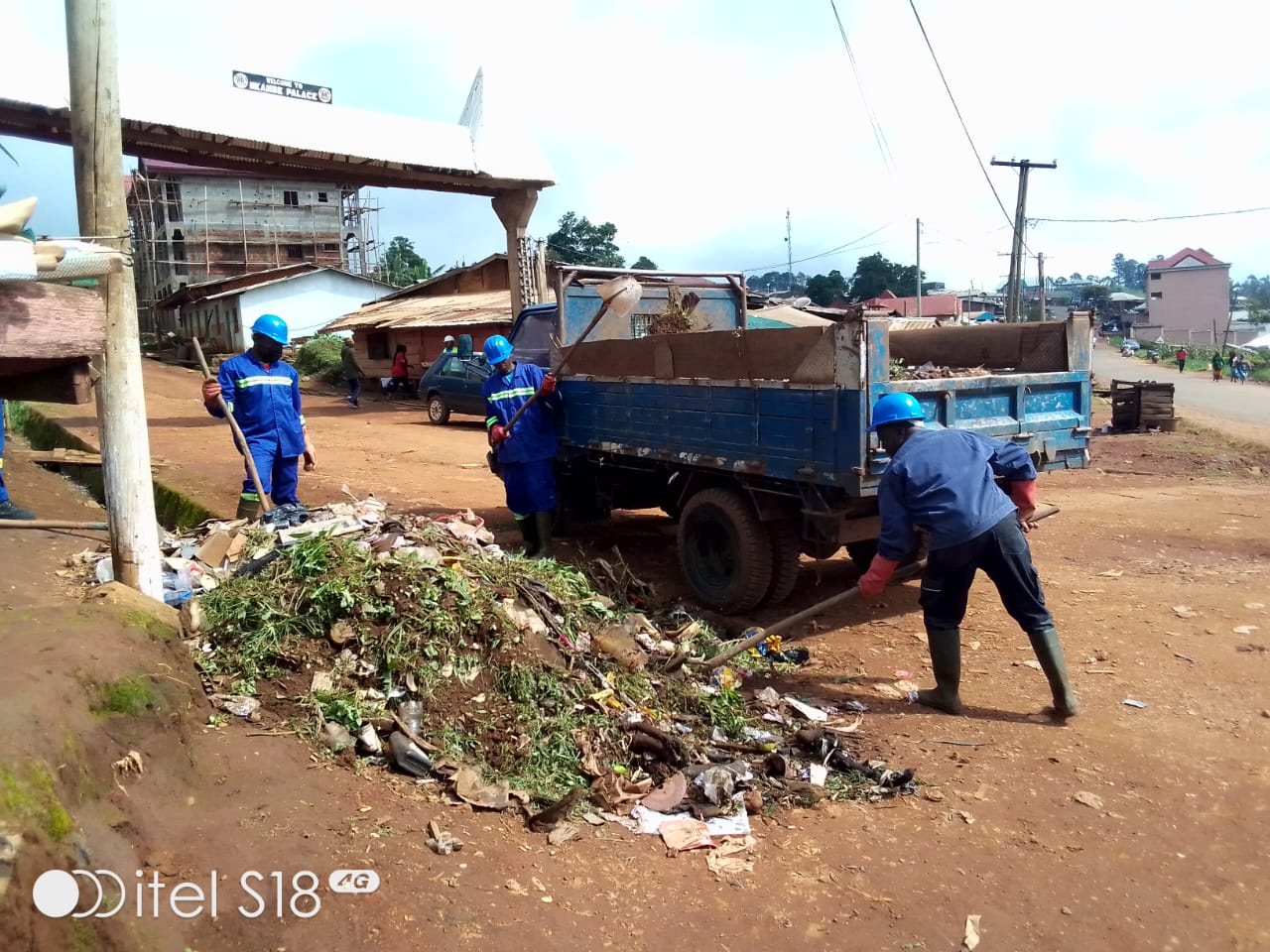Nkambe, Cameroon – The Nkambe Council continues to lead the charge in promoting clean and sustainable practices throughout the municipality, with a series of comprehensive efforts aimed at transforming public spaces, schools, and markets into models of hygiene and environmental responsibility. As part of its broader mission to make Nkambe one of the cleanest towns in Cameroon, the Council has rolled out multiple initiatives to instill a culture of cleanliness in the community.
Clean Streets Initiative
The Council has invested heavily in the Clean Streets Initiative, ensuring regular collection and proper disposal of waste from residential areas, streets, and public spaces. Through collaboration with local waste management teams, the Council has installed waste collection points throughout the town, making it easier for residents to dispose of household waste responsibly. Additionally, regular street-cleaning campaigns have been organized, involving community volunteers, Council workers, and local organizations. These campaigns focus on removing litter from streets, gutters, and public parks, ensuring that the town remains clean and attractive.
“The cleanliness of our streets reflects the pride we take in our town,” said Mayor Shey “We are committed to ensuring that every resident has access to clean, well-maintained public spaces, and we appreciate the community’s support in this mission.”


Schools Leading the Way in Cleanliness
Nkambe Council has also targeted schools as a key area for fostering clean habits among young people. The Council has partnered with local schools to implement the “Clean Schools, Healthy Students” program, which focuses on teaching students about the importance of hygiene and environmental conservation.
Schools across the municipality have received trash bins and hand washing stations, and students are actively participating in weekly school clean-up days, where they take responsibility for keeping their school grounds free of litter. The Council also runs awareness sessions in schools, where students learn about proper waste disposal, the dangers of plastic waste, and the benefits of recycling.
“Our students are not just learning about clean habits, but they are becoming advocates for environmental care in their homes and communities,” remarked Head teacher “We believe that teaching these values early will create a generation that is conscious of its impact on the environment.”




Market Clean-Up Campaigns
Markets, often the busiest hubs of any community, have also been a key focus of the Council’s efforts. Recognizing the need for clean and sanitary conditions in public markets, the Nkambe Council has deployed regular cleaning crews to ensure that market areas are maintained daily.
The Market Waste Management Project introduced by the Council provides waste collection services for vendors and customers. Designated waste bins have been placed at strategic locations throughout the markets, and vendors have been encouraged to take responsibility for keeping their stalls clean. The Council also conducts monthly market clean-up days, where traders and local authorities join forces to thoroughly clean market areas, focusing on waste removal and cleaning of public restrooms.
“The clean markets initiative is important not just for hygiene, but for public health,” explained [Head of Health and Sanitation at the Council]. “By keeping our markets clean, we reduce the risk of disease and create a more pleasant shopping environment for everyone.”


Ongoing Public Sensitization
To sustain these efforts, the Nkambe Council has launched a robust public sensitization campaign across the town, using radio announcements, social media, and public meetings to encourage residents to adopt clean habits. The campaign educates the community on the importance of waste separation, proper disposal of refuse, and reducing the use of plastic bags. The Council has also partnered with environmental NGOs to conduct workshops and awareness drives focused on waste recycling and composting.
Mayor [Name of Mayor] emphasized the importance of collective responsibility, stating, “Keeping Nkambe clean is not just the responsibility of the Council—it’s a community effort. Every resident, student, and trader plays a role in ensuring that our town remains a clean and healthy place to live.”
Looking Ahead
As Nkambe continues to grow, the Council remains committed to expanding its cleanliness initiatives. Plans are underway to build a recycling center and introduce more sustainable waste management solutions, such as composting programs for organic waste.
By championing clean habits across streets, schools, and markets, the Nkambe Council is setting a new standard for municipal cleanliness in Cameroon. These efforts not only enhance the beauty of the town but also promote the health and well-being of its residents, ensuring a cleaner, greener future for all.







0 Comments